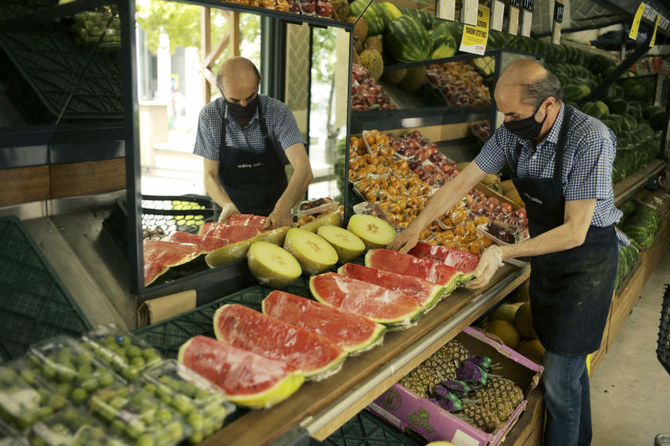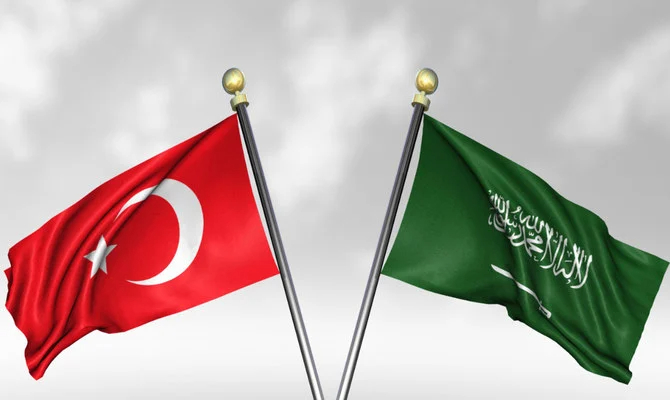ANKARA: Turkey’s inflation climbed to its highest level since 1998, hitting an annual 73.5 percent in May, official data showed on Friday, an issue dogging President Recep Tayyip Erdogan ahead of elections next year.
Critics have blamed the country’s economic woes on Erdogan’s unorthodox economic policy of pushing for lower interest rates to combat price rises.
The central bank refused again last week to raise its main rate, keeping it at 14 percent.
Soaring food and energy prices pushed inflation even higher last month.
Transport prices jumped by 107.6 percent in May while food was up 91.6 percent.
Russia’s invasion of Ukraine and the coronavirus pandemic have exacerbated the energy price spikes and production bottlenecks.
With elections looming in June 2023, the opposition and many economists have accused the national statistics agency of deliberately underestimating the magnitude of inflation.
The Inflation Research Group, made up of independent Turkish economists, said on Friday that inflation actually accelerated by a whopping 160.8 percent, more than twice the official figure.
The statistics agency did not publish the detailed list of prices per product that serves as a basis for its calculations, a move that raised fresh doubts about the accuracy of official figures.
“According to my own observations, the gap between reality and what is measured has widened this month, with the goal of hiding impoverishment,” economist Murat Kubilay wrote on Twitter.
The country’s currency, meanwhile, has lost nearly 48 percent in value over the past year.
The collapse of the lira has pushed up the cost of energy imports and foreign investors are now turning away from the once-promising emerging market.
Rumors of military intervention in northern Syria further hit the value of the Turkish lira, which was at 16.49 to the dollar on Friday. The currency has lost nearly 48 percent in value over the past year.
Erdogan’s government has responded by using state banks to buy up liras in a bid to cut the currency’s losses.
Turkey has cut taxes on some goods and offered subsidies for electricity bills for vulnerable households but even this has failed to stem inflation.
There has also been speculation that the central bank sells dollars to stem the lira’s slide.
“If we don’t see change in policy the country faces a systemic economic crisis,” Timothy Ash, emerging markets strategist at BlueBay Asset Management, said on Twitter.
Meanwhile, Kyiv’s ambassador in Ankara said Turkish buyers were among those receiving grain that Russia stole from Ukraine, adding he has sought Turkey’s help to identify and capture individuals responsible for the shipments.
Russia and Ukraine account for nearly a third of global wheat supplies, while Russia also heavily exports fertilizer and Ukraine corn and sunflower oil.
But Ukrainian grain shipments from its Black Sea ports have stalled since Russia invaded, with some 20 million tons of grain stuck.
Ambassador Vasyl Bodnar said Russia was shipping the stolen grains out of Crimea, which it annexed in 2014, and added Kyiv was working with Turkey and Interpol to find the culprits.
“Russia is shamelessly stealing Ukrainian grains and getting it out from the invaded Crimea. These grains are being shipped to foreign countries, including Turkey,” he told reporters in Ankara.
“We have made our appeal for Turkey to help us and, upon the suggestion of the Turkish side, are launching criminal cases regarding those stealing and selling the grains,” he said.
The Ukrainian Embassy in Ankara later said the vessels that were involved in the stolen grains shipments were the Nadezhda, Finikia, Sormivskiy, Vera, and Mikhail Nenashev.
Reuters was not able to independently verify the embassy’s claims.
The Ukrainian Embassy in Beirut said this week Russia had sent its ally Syria some 100,000 tons of stolen wheat. The conflict has fueled a global food crisis, prompting the UN to pitch the plan to re-open shipping routes from Odesa and other Ukrainian ports.
AFP/Reuters






















